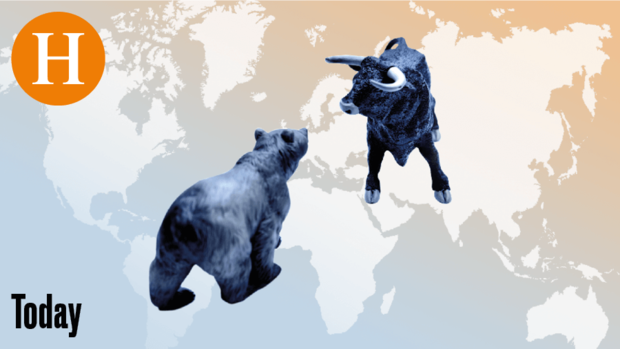Dusseldorf Russian President Vladimir Putin wants “unfriendly states”, which he includes the entire EU and the USA, to still have their gas deliveries paid for in rubles. The details are still to be worked out, but Western states could be forced to circumvent their own sanctions against Russia, at least indirectly.
“Assuming that it happens as Putin announced, then from his point of view it would have the advantage that it would be easier and more powerful to support the ruble exchange rate on the foreign exchange markets than in the current arrangement,” said economist Jens Südekum in the new episode of “Handelsblatt Today”.
Germany and other EU countries currently pay their gas bills in euros. The money goes directly to Russian energy suppliers such as Gazprom, which then have to exchange 80 percent of the hard currency for rubles at the Russian central bank. However, the Russian central bank is not fully capable of acting as it is subject to Western sanctions and can therefore hardly use this currency on the international markets to support the ruble exchange rate.
Putin’s plan could result in “Russian commercial banks de facto using these currencies instead of the central bank as non-sanctioned banks in order to influence the ruble exchange rate themselves,” Südekum said. But that is only the purely technical and economic interpretation of Putin’s maneuvers. “I think the second, namely the power-political dimension, is far more relevant.”
Top jobs of the day
Find the best jobs now and
be notified by email.
Putin simply wants to change the rules of the game here, even though the contracts are denominated in euros and dollars. “In my view, the West cannot get involved in such games at all,” says Südekum.
Südekum: “The danger of a recession is very high”
A complete gas embargo against Russia has now become more likely, believes Südekum. However, such a scenario could hit the German economy hard: Südekum does not rule out that there could also be production losses in Germany if the gas storage facilities cannot be replenished over the summer. And without Russian gas, that would be much more difficult.
In addition to looking for alternative gas suppliers such as the USA or Qatar, it is now also necessary to save energy. The economist calls for “a massive energy-saving campaign, including car-free Sundays and a speed limit on the motorways.”
Clear consequences of the Ukraine war for the German economy are already becoming apparent: The growth forecasts have been revised downwards even without an embargo. “The danger of a recession is very high,” says Südekum.
Also: Handelsblatt stock analyst Ulf Sommer spoke live with the Instagram community on Tuesday evening about the dangerous dependence of German companies on the Chinese market and the inaction of the ECB despite high inflation.
We have an exclusive subscription offer for you as a Handelsblatt Today listener. Interested? Then take a look here.
If you have any comments, questions, criticism or praise for this episode, please email us at: [email protected]
